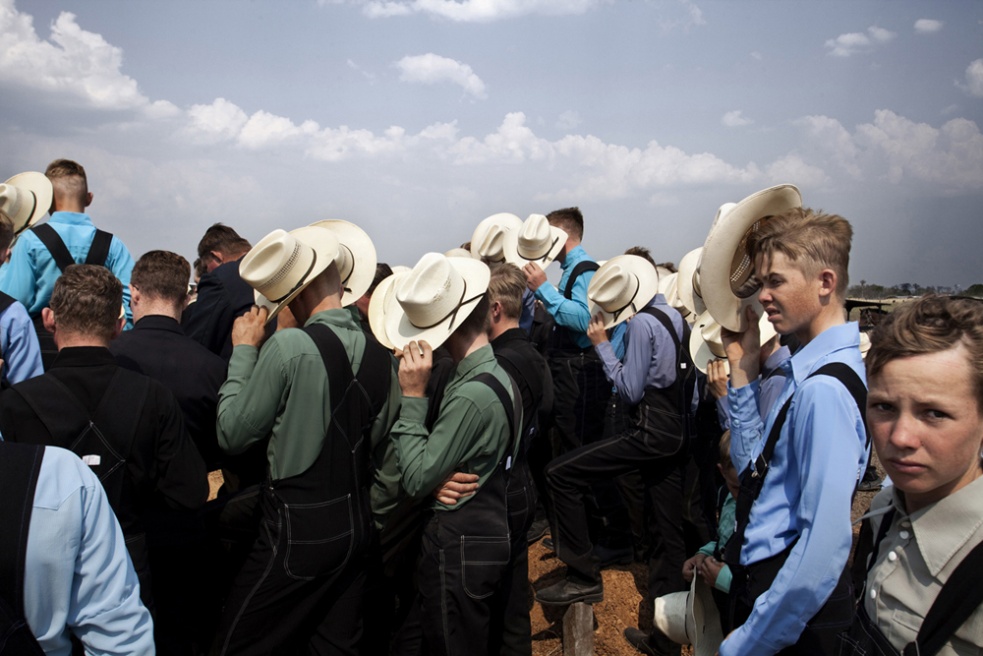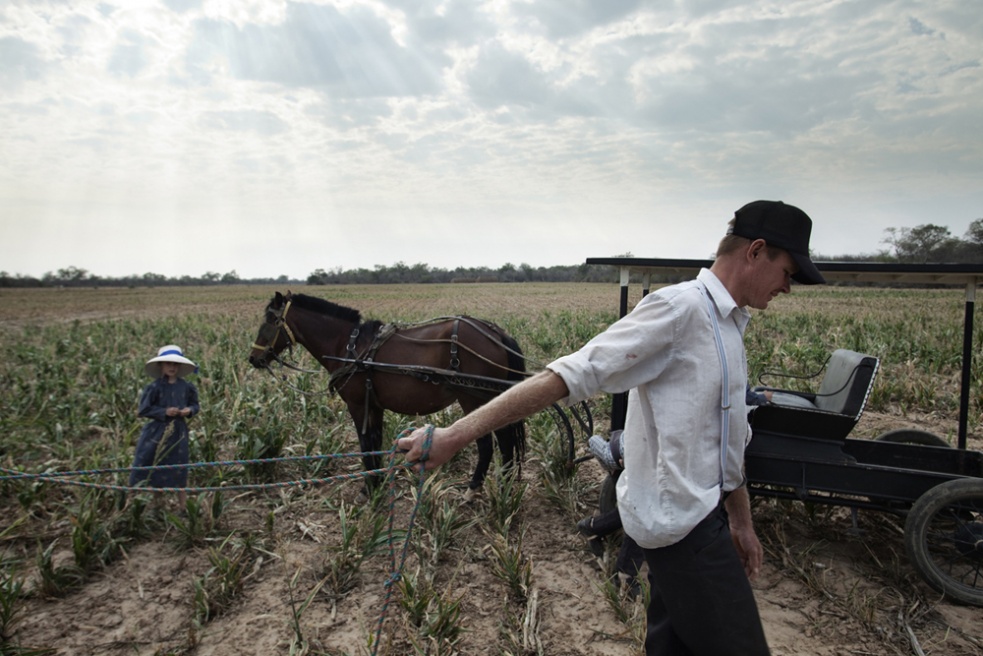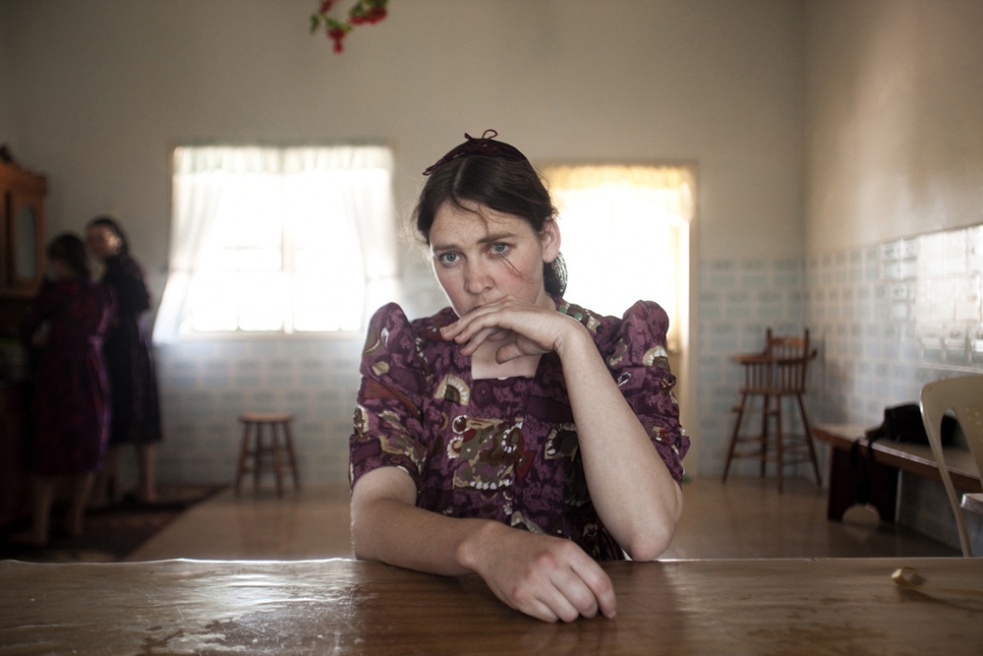They arrived in Bolivia during the fifties, coming from Canada, Mexico or Belize, where their lifestyle was being threatened. In Canada the young people wasn’t taking the right path, and then the government banned their education system. That was enough for leaving the country, and so a group of them went to Bolivia invited by the government with the promise of land and religious freedom. Nowadays in Bolivia, there are more than fifty thousand Mennonites, or Menonos, as they are called here, although the exact number is difficult to know as many of them are living unregistered or with foreign passports. They still live as their ancestors did on the S.XVI Germany, without cars, electricity, telephone, and extremely isolated from the local community.
"Evo doesn’t like us" they complain referring to the president Morales. Unfortunately for them, the government is now increasing environmental control that prevents them from cutting the forest. The colonies are not sure how to deal with the growing growing 'influence of the locals', which means easier access to alcohol, music and cars. Some will eventually decide to leave the colony for a new and more isolated one, where the forest is yet to be cut, and Bolivian towns are tens of dusty kilometers away. But still Mennonites will always be a considered a source of income for Bolivians, and they know this. Sometimes they have to go to the city, but they don’t drive, they have cattle but no way to sell it. So no matter where they settle again, soon taxi drivers will start driving around, cattle buyers will pass with their trucks, and just a while after a little shop will be placed right at the entrance of the colony. New countries in which to settle are difficult to find, and so is new land in Bolivia, so the feeling of ‘getting to the end’ of a period is felt all around the community.
























